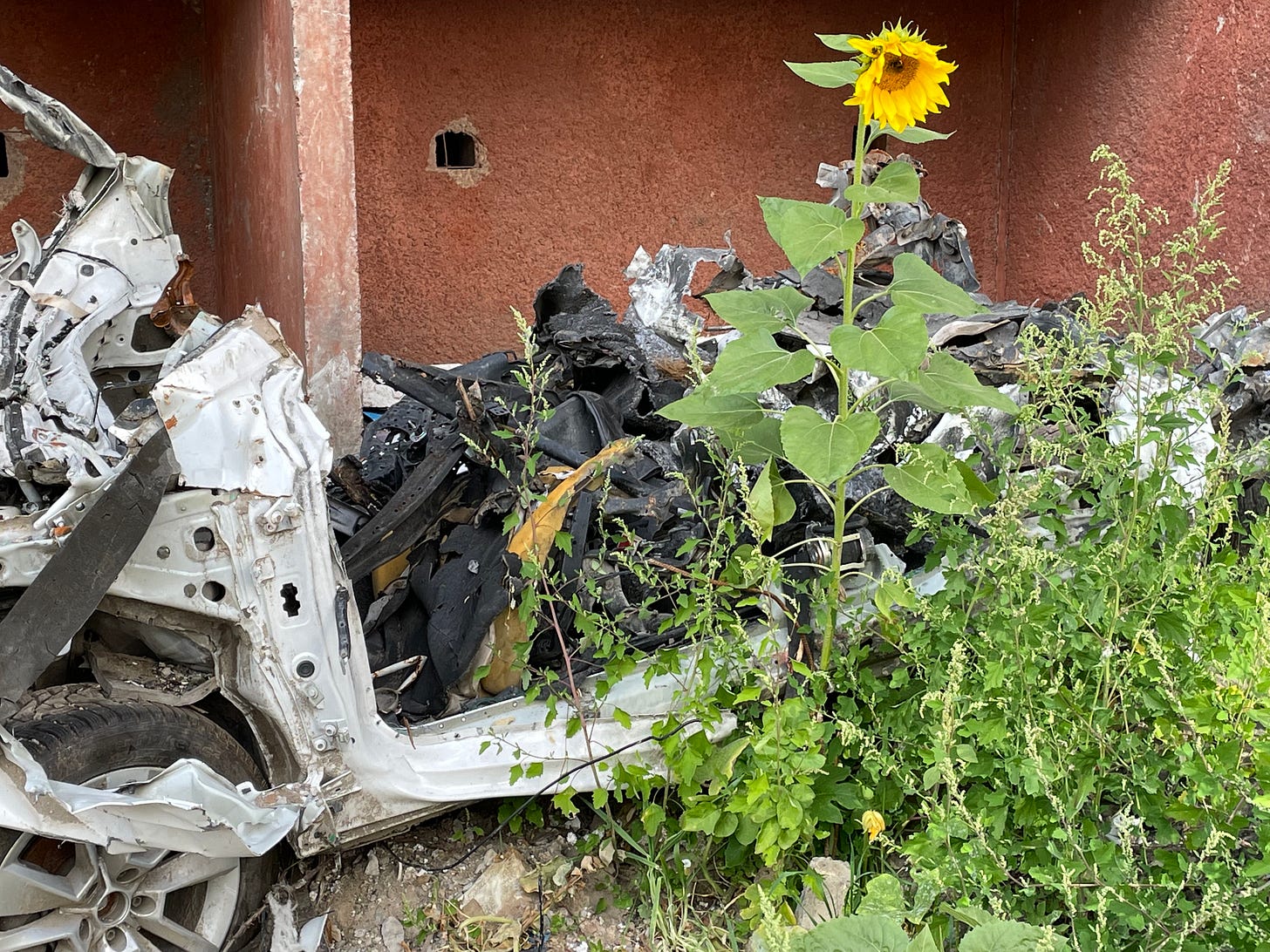In this lecture, which I will summarize briefly here, I take the premise seriously. Democracy might or might not have a future. The signs, in general, are not good. The tendency, also in this country, is not encouraging. Our republic might have only a few years left. I will write about this soon.
I try to make the case that the future is democracy, or it is not at all. We are used to people telling us that we have to choose between freedom and security. In fact, we have to choose both to get either. Climate change will be resolved if majorities are heeded. Those who accelerate climate change tend to be oligarchs backed by minorities.
In the lecture, I try to show how the war in Ukraine is a specific (and terrible) instance of a general problem. Vladimir Putin is the most important of the hydrocarbon oligarchs. Like all of them, he has no plausible vision of the future, and instead tries to realize implausible visions that consume the future for everyone else. His personal fantasy is that there is no Ukraine. On this absurd basis Russia has invaded a neighboring country and begun a war of extermination.
A sense of time is necessary for democracy. In the lecture, I move to the relationship between the future and the past. A tyrant who says that something has “always” been a certain way is consigning to “never” the things that actually happened. So the claims that Crimea was “always” Russia or that Ukraine and Russia were “always” together are not simply false; they are also a self-authorization to say that other peoples or countries “never” existed — and so that any signs of their existence have to be suppressed

.
Russia’s war against Ukraine has been genocidal. If Ukraine is not real, than anyone defending it must somehow be a foreigner; when more and more Ukrainians appear to defend their country, they too must be killed. These assertions of non-existence, I continue, raise the more interesting question of what it does mean to exist as a society or as a nation. What exactly is it that Russia is encountering in Ukraine? (And is it not a problem for Russia that the non-existence of Ukraine has become the central argument for the existence of Russia?)
I contend that the “objective” measures that we apply from the outside to judge the existence of a society or a nation, such as ethnicity or language, are themselves often imperial forms of knowledge, suppressing or ignoring the actions and commitments of the people in question. The fact that Ukrainians are bilingual is very confusing to both Russians and Americans; in fact, Ukrainian use of language, for example in creative wartime communications, is an example of creative self-assertion.
I contend in the lecture that the existence of Ukraine as a society and as a nation is better understood as a matter of recent experience, including the ability to change leaders through elections, and defend that process when necessary. The war itself has been carried out in large measure by a Ukrainian civil society that has constituted itself in the last decade.
The Ukrainian president’s choice to remain in the country, I argue, is an important reminder that democracy exists as a commitment, or not at all. In taking a physical risk, he was making possible certain kinds of futures that would otherwise have been impossible. Democracy depends upon choices of this kind. In the United States, people were generally convinced that Volodomyr Zelens’kyi would fled the country, and that Ukraine would quickly fold. This was a sign of our own problems.
We (and this is lecture’s conclusion) have tended to forget that democracy is about the future, and as such can only exist when individuals seek to generate futures on the basis of values with the help of institutions that allow them to do so. Since 1991, since the end of the Soviet Union and the beginning of Ukrainian independence, we have tended to believe the democracy was inevitable, because there were no alternatives, because capitalism would guarantee it, and so on. In fact, placing faith in structural factors and abstractions makes democracy impossible. Democracy will always be a struggle.
This is just a summary! The points are much better made in the lecture itself, which was delivered at Stony Brook on 19 October.
PS I am making this lecture and this summary available to all on the mailing list, but please do subscribe if you can. Paid subscription will give you access to the entire archive, as well as access to a number of other podcasts, as well as to on-line exchanges with me, which will resume in a few days.













Share this post